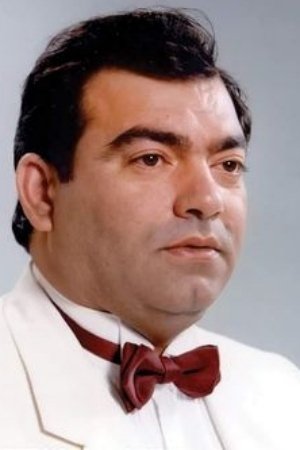Gegam Grigorian (1951-2016)
Alias:
Gegham Grigorian
Gegham Grigoryan
Birthplace:
Yerevan, Armenian SSR, USSR [now Armenia]
Born:
January 29, 1951
Died:
March 23, 2016
Gegham Grigorian (also written Grigoryan, Armenian: Գեղամ Գրիգորյան; Russian: Гегам Григорян; 29 January 1951 – 23 March 2016) was an Armenian operatic tenor. Gegham Grigorian was born in Yerevan and graduated from Yerevan Komitas State Conservatory. He was a student of Professor Sergei Danielyan. Grigorian made his first appearance on the big stage in 1971 at age 20. In 1972 he went to West Berlin to perform in solo concerts. In 1975 he made his debut at the National Theater of Opera and Ballet of Armenia in the role of Edgardo in Lucia di Lammermoor by Donizetti. After this, he played Saro in Armen Tigranian's Anoush, Tirit in Tigran Chukhajian's Arshak II, Sayat Nova in Alexander Arutiunian's Sayat Nova, Count Almaviva in Gioachino Rossini's Il Barbiere di Siviglia, and the titular role in Charles Gounod's Faust. By the 1970s, he was already a famous singer in the Soviet Union. In 1978, he took part in the competition of La Scala Theatre Academy in Milan and was one of the four winners who were invited to qualify for this school. During his traineeship in Italy, he participated in several concerts. At La Scala, Gegham Grigorian made his debut in the role of Pinkerton in Madama Butterfly by Giacomo Puccini. After that performance, he signed a contract with La Scala" for leading roles in the operas "Boris Godunov" and Tosca. The performances were to be conducted by Claudio Abbado, who was then the principal conductor of La Scala. "But politics interfered. The Mussorgsky opera was being staged by Yuri Lyubimov, the famous Moscow director-dissident already in conflict with the government (he was later stripped of his citizenship, in 1984). The production was in rehearsals when the Soviet Union Ministry of Culture asked Grigorian to cancel his participation. As the singer described it at the time - just after the first dress rehearsal - he initially refused. But when the authorities threatened him and his family he acquiesced and departed for Russia. Subsequently he was put on the so-called restricted artists list and not allowed to leave the Soviet Union for eight years" (25 March 2016| by Maya Pritsker, Musicalamerica.com) As written by The Telegraph on 30 March 2016: "In November that year (1979), however, he turned up in Trieste, some 250 miles east of Milan, seeking political asylum. He was living in a refugee centre while his case was being considered, but within days had vanished, failing to turn up in Milan for his appearance in Mussorgsky’s Boris Godunov on December 7." In 1980, Virgilijus Noreika, artistic director of Lithuanian National Opera and Ballet Theatre invited Grigorian to work In Vilnius. There Grigorian worked with the famous conductor Jonas Alex. He sang in the operas Eugene Onegin, Don Carlos, Boris Godunov, La Traviata, Madama Butterfly, Rigoletto and many others. In 1989, at the invitation of Valery Gergiev he joined the Kirov Opera (soon to be the Mariinsky Theater) as the lead singer. Here Grigorian was a great success. In those years, the Mariinsky Theater had just gained fame. Gegham Grigorian made a great contribution in the formation and establishment of a company of soloists under the chief conductor and artistic director Valery Gergiev. ... Source: Article "Gegham Grigoryan" from Wikipedia in English, licensed under CC-BY-SA 3.0.





